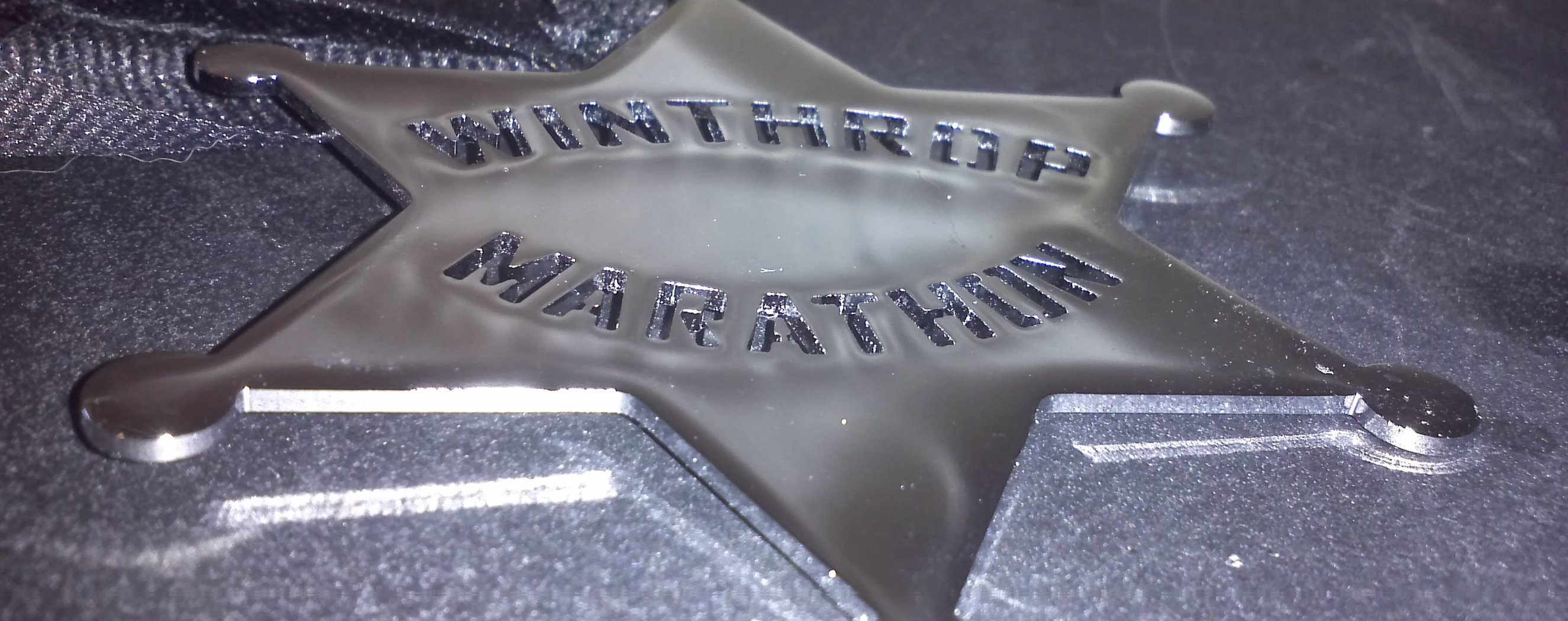Why We Run by Mark Stone
May 2012. One year ago this weekend I ran in the Seattle 15K, my first big race since returning to running in 2009. This year I am not running in the Seattle 15K, instead opting tomorrow for the Capital City Half Marathon (my second half marathon). While I have some anxiety about how tomorrow will go, its interesting to note how much has changed in a year.
First the anxieties. I had an ambitious training program laid out for this event, including 4 months of speed work to get me consistently under 8 minutes a mile on shorter runs, and then 3 months of distance training that was supposed to culminate in a 14 mile and then a 16 mile training run. My distance training has been hampered by a hernia and then a bout of intestinal flu. I got as far as a 13 mile and a 14.5 training mile run, but no further. I made good progress on my speed work, hitting all my initial goals, but that has been difficult to sustain since I started a new job and am now doing my speed work on the treadmills at 24 Hour Fitness in Bellevue instead of the treadmill at home. Unfamiliarity with the equipment, less flexibility about when I can run, and warmer running conditions have left me struggling at the gym these last couple of weeks.
Am I capable of running a half marathon tomorrow? Of course. But will I reach my aim, of finishing in under 2 hours? I just don't know.
In those moments of doubt I really need to step back and reflect on the last year. Some points I need to consider:
- When I ran the Seattle 15K, I had never run farther than 8 miles in my entire life. So 9.3 miles was a personal best for distance that day.
- Since then, I've had numerous personal bests in distance: 10 miles, 11 miles, 12 miles, 13.1 miles, 14.5 miles.
- I now consider a 10 mile run to be routine, even though my first time running that distance was only 10 months ago.
- I have probably run more miles in the last year than I have in my entire life up to that point, and I have a lot to show for it in terms of health and fitness.
So really there is no possibility of failure tomorrow; whatever my finishing time, it will cap a year of accomplishments of which I can and should be proud. So why are we runners always so hungry for more?
I listened to an interesting podcast recently, an interview with New York Times columnist Gretchen Reynolds. While these were almost an aside to the main thrust of the conversation, she made four points that really stood out for me:
- Distance runners live, on average, 24% longer than people who do not exercise regularly.
- In a year of running, a distance runner has a 75% chance of getting injured.
- If you do a moderately vigorous walk for half an hour a day, you will live, on average, 20% longer than someone who does not exercise regularly.
- Walking does not increase the likelihood of injury.
So runners attain modest long term health benefit compared to walkers, but also face a nearly inevitable string of injuries in the process. Clearly we are not running just to be healthy; walking would produce a much better overall expected value if that were the only goal.
And indeed Reynolds' findings reflect my personal experience. I'm more fit now than I have been at any time since my 20s, maybe at any time ever. I also spent 10 months running on a pulled groin muscle, and I'm about to run a half marathon with a hernia. Injury is part of the process that I obviously accept.
But I just can't bear the thought of settling for less than running. It has become not just a question of what's good for my body, but what's good for my soul. Some of this is purely physiological (the so-called "runner's high"). In that sense, I am addicted to running. And I do show all the classic signs of addiction. I get edgy and uneasy when I'm away from running too long, I don't judge the risks of doing any given run in a rational manner, and if I even imagine giving up running permanently I start to feel panicky.
But it isn't just physiology. There is something deeply spiritual about my long runs on the weekends, and I look forward to that time all week. It is when I bring myself together with the universe, when I find emotional peace with the struggles of the week, and when I sort out all my thoughts so that I am renewed and ready to face the new week.
The last year has been incredibly challenging. We have a 6 year old with special needs to parent, and a teenager who is at the low point of adolescence before (hopefully) rising to become an adult. We've dealt with my wife's cancer scare. I've dodged looming unemployment twice by changing jobs; not an easy thing to do in this job market. The most important factor to get me through all this has been the love and support of my family. But the next most important factor has been running.
Running reminds me that I have strength. Running reminds me that I can master what once seemed insurmountable. Running gives me space for soul searching. Running grants me serenity. And yet... somehow approaching running competitively is essential to attaining the serenity. With running there must always be a next goal to aim for, a next achievment to strive for, another race to anticipate. The hunger to go faster, to go farther, to do better is necessary for the soulful calm that running brings. And that is the paradox of why we run.


